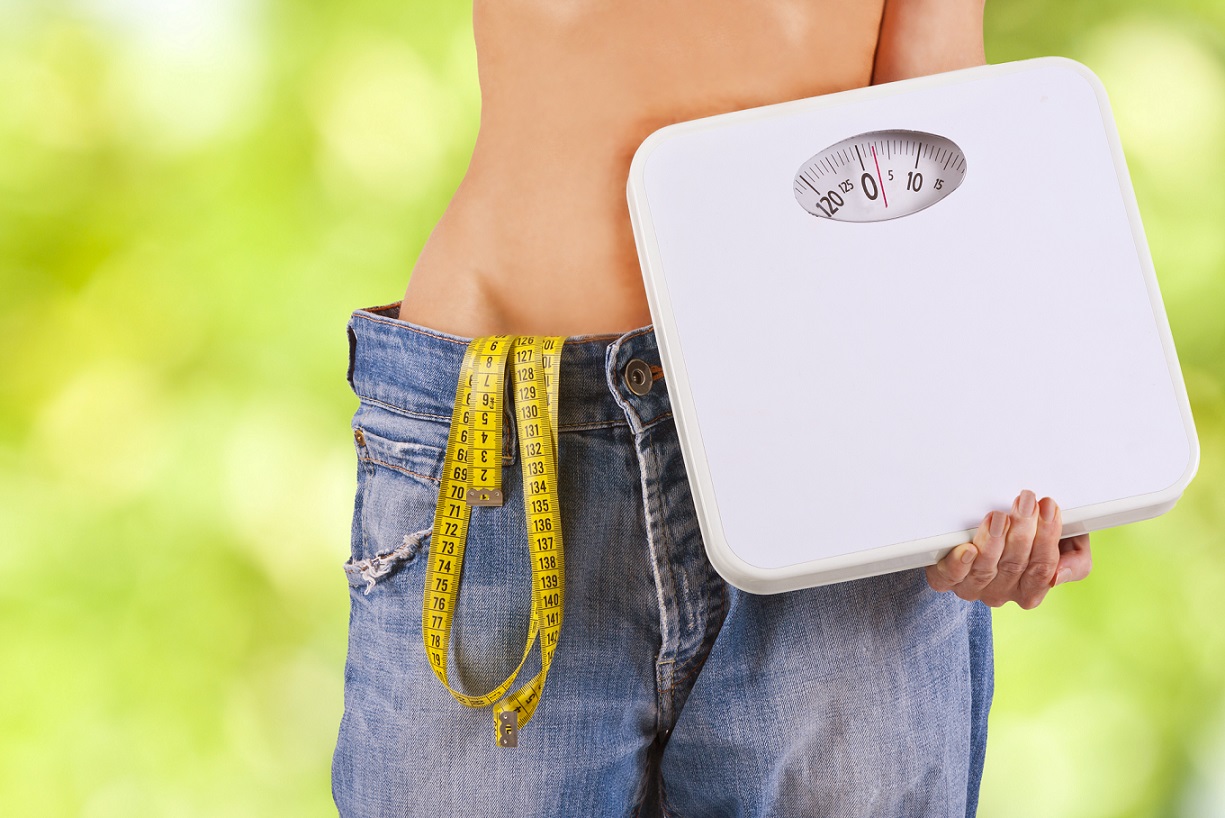Lose weight after Christmas
The title of the article is surely one of the most common wishes for the new year: "I would like to lose what I have earned at Christmas."
Although we have read the previous article published in our blog "how to control the excesses of Christmas", we will probably have been tempted in a business or family meal and our scale reflects a few grams more than before the Christmas holidays began. In any case, we should not become obsessed because fulfilling that New Year's wish is simpler than it seems following a series of guidelines.
Several surveys show that in Spain the two kilos of weight gain can be exceeded from the start of business meals (where we can include meals with groups of friends, clubs and organizations) until after Kings Day. But, although 2 kilos may seem a lot, our weight before the start of the holidays could be recovered without much effort before the end of January.
In any case, we can take the opportunity to “go further” and try to achieve adequate eating habits that will allow us to reach our ideal weight, as well as gain in health.
How to get it?

We must always be clear where we want to arrive to conveniently design the road and therefore our starting point will be to establish a clear and attainable goal. We should not rush and try to achieve very ambitious objectives in the short term, because not achieving them could diminish our motivation. Nor should we be very ambitious and set ourselves an unattainable end goal. It is best to set partial objectives in the medium term to be able to redesign our path.
An example: let's say that we begin Christmas with an overweight of 3 kg with respect to our ideal weight (referring to the ideal for us because the criteria of ideal weight established by the Spanish Society for the Study of Obesity [SEEDO] are not valid for all the population). In addition, we have added "another kilo of weight" during the holidays.
Our overweight we have estimated it therefore in 4kg. Without much effort being necessary, we could consider recovering the pre-Christmas weight by the end of January (1st objective), to reach that ideal weight by mid-March (2nd objective / final). It would be about setting ourselves goals that allow us to internalize lifestyle and food changes without a very abrupt change could produce a “rebound effect or yo-yo effect that we will talk about later”.
Next, we will develop the factors that we consider fundamental in the process: eating a healthy, natural and balanced diet, leading a healthy lifestyle, keeping our metabolism active, avoiding anxiety and keeping ourselves busy.
IF YOU NEED A NUTRITIONIST PROFESSIONAL WHO MAKES YOU A NUTRITIONAL PLAN, FROM DIETFARMA WE WILL HELP YOU:
Eat a healthy, natural and balanced diet

Although it seems obvious advice, certainly following a healthy, natural and balanced diet should be our first priority. Although we can lose weight in many ways, we must try to take advantage of our goal of losing weight to find ourselves better.
But ... What is a healthy, natural and balanced diet?
By healthy diet we understand that which allows us to maintain, recover or improve our health; naturally, that composed of food that comes directly from plants or animals; and balanced, the one that contains the right amount of all the nutrients we need.
But ... is it easy to follow a diet with these characteristics? Well, it's easier than we think.
Some advices:
1. We must buy the essential minimum of processed products. The probability of finding additives, saturated fats and sugar in them is frankly higher than in natural products.
2. We must plan our meals and from that plan, buy the products we need to follow it. It is better not to go with an "open" list of products to buy, or worse, without a clear idea of what we want to acquire in the supermarket. In addition, we should avoid going shopping when we are hungry. The ideal time to do so is after breakfast, lunch or lunch.
3. Use small plates instead of large ones, or if you use large plates, at least half of the plate is “green”.
4. Preferably grill, steam or bake and avoid processes that substantially modify the characteristics of the ingredients, such as fried and battered.
5. Include in all your meals the three macronutrients (carbohydrates, proteins and fats), maintaining approximately the percentage of fats in all meals and being higher the proportion of carbohydrates at breakfast and lunch and lower at dinner (fair unlike proteins, whose proportion will be higher at dinner).
Live a healthy lifestyle

To lead a healthy lifestyle it is essential to take care of our diet, but we can also follow the following tips:
- Enjoy food and eat in company.
- Avoid long hours of fasting.
- Avoid popular or very low calorie diets.
- Eat in moderation.
- Vary breakfast.
- Limit the salt content of meals.
- Drink water throughout the day. There are myths and discrepancies about the amount of water we should drink. The World Health Organization has not established a specific figure, but there is no doubt that we should drink throughout the day to stay hydrated. The amount will be higher the more we get dehydrated by the activities we do (work effort, sport ...) and the climate of the place where we live and the time of year.
- We must make a moderate (and even better low) consumption of alcoholic beverages. Alcohol provides calories (7 kcal / g), almost as much as fat (9 kcal / g) but without them being able to obtain energy and can only be metabolized in the liver (and therefore subjecting it to unnecessary stress).
- We should practice moderate exercise. No extreme is good, so performing sports at mild / moderate intensities on a regular basis is considered most appropriate for a person who has led a sedentary life so far.
Keep the metabolism active

Very related to the healthy lifestyle, we all consume daily a series of calories to carry out vital functions, but we must try to achieve and maintain a high caloric intake at the same time that we achieve a feeling of satiety.
To consume more calories, it is best to live an active life. It is not necessary to sign up for the gym, but we must try to increase our daily level of activity through long walks, climbing stairs, jogging or taking a bike ride.
In addition, we must try to have an active stomach because this will give us a feeling of satiety and regulate hormonal processes that will be treated later. It is advisable that we make five meals a day between breakfast, lunch, lunch, snack and dinner. Making less spaced intakes will facilitate the feeling of satiety and avoid getting too hungry for the next meal.
Avoid anxiety

Many of us temporarily reduce stress or worries through food. Any situation, such as returning to work after the holiday period or the same "January cost" could be the origin. In other cases it is the diet itself that can cause us anxiety, mainly restrictive diets, and this usually happens when we have decided to make a plan / diet that they made to a friend or that we have found in Google. Remember that you can improve your eating habits through articles with scientific support such as this one, but to make a nutritional plan you must have the advice of a professional nutritionist.
Whatever the cause that causes our feeling of anxiety, it has a scientific explanation. The hypothalamus is the region of the brain where food consumption and satiety are regulated through hormones. The hormones that regulate appetite are multiple, and then we highlight some of the most important:
- Insulin: its excess causes hypoglycemia and increases our appetite. It is released into the blood to allow each cell to obtain energy, both for instant consumption and for storage.
- Glucagon: induces the feeling of satiety, although there are investigations that have concluded that it does not have that effect in people with obesity.
- Cortisol: its increase triggers emotional hunger. If we are stressed, we will secrete cortisol as an emotional response.
- Leptin and Ghrelin: two complementary hormones that activate appetite depending on the amount of fat. They are held responsible for the “yo-yo effect” mentioned above after the completion of a diet. Ghrelin is activated in the stomach when it is empty (produces hunger), and is therefore one of the reasons why making 5 intakes instead of 3 inhibits the segregation of this hormone and, therefore, the desire to eat.
- Cholecystokinin: gives us a feeling of fullness after fat intake. It occurs in the small intestine.
By eating something we like (what we usually drink when we have anxiety), dopamine is released, a hormone that generates relaxation and well-being. This in turn is the one that unconsciously can "hook" us to certain foods.
Therefore, the way to deal with the excess of “hunger / anxiety” is twofold: on the one hand, we must know the origin of our stress and try to reduce it; on the other, we must adopt correct eating habits as they will lead to adequate hormonal segregation.
IF YOU NEED A NUTRITIONIST PROFESSIONAL WHO MAKES YOU A NUTRITIONAL PLAN, FROM DIETFARMA WE WILL HELP YOU:
Stay busy
There is no better way to avoid the typical "pecking" than to be doing something that keeps us entertained. The work itself is often the one that keeps us so busy that it is when the weekend comes when we "get closer to the kitchen".
Many times having a schedule of activities to do and meals to perform is a good way to know when and what to eat. In any case, we don't have to get away from the kitchen; This can be a good way to be busy preparing what we have planned or a healthy recipe from the dietfarma website that we want to try.
If you are one of those who itches easily while cooking, try peeling a carrot or zucchini in strips, and if you need to drink something other than water, try the carbonated water. Although it may seem similar, carbonated water drinks more slowly and helps to achieve a feeling of fullness.
Practical tips

At this point we might think that we could use a list of what we should do and what we should avoid to gradually approach the aforementioned "healthy habits." Below, we present a list of what we found most relevant to meet our objective:
“Yes”
- Make five meals a day.
- Try to eat at the same time every day.
- Eat at least five servings between fruits and vegetables, giving the dishes different colors.
- Eat at least half of the raw vegetables.
- Steam or grilled.
- Take foods rich in fiber.
- Include healthy fats, preferably using for cooking and dressing virgin olive oil.
“NO”- DO NOT make copious meals until we feel “full”. Even less at dinner.
- DO NOT abuse bread at meals, but include it in limited quantities.
- DO NOT drink sugary drinks or very fatty foods.
- DO NOT drink alcoholic beverages in general, although there are studies that state that a couple of glasses of wine a day for men or one for women could reduce the likelihood of cardiovascular disease.
- Avoid going to fast food restaurants or do it occasionally (once a month).
- Avoid sauces, fatty cheeses and sausages.
IF YOU NEED A NUTRITIONIST PROFESSIONAL WHO MAKES YOU A NUTRITIONAL PLAN, FROM DIETFARMA WE WILL HELP YOU:
This article has been prepared by our student in practices of the Human Nutrition and Dietetics career, Ricardo Noval Martín.
BIBLIOGRAPHY
Christopher J. Ley, Jonathan Swan, Ian F. Godsland, Christopher Walton, David Crook, John C. Stevenson. Insuline resistance, lipoproteins, body fat and hemostasis in nonobese men with angina and a normal or abnormal coronary angiogram. J Am Coll Cardiol. 1994; 23 (2): p. 377-383.
Ciampolini, M., Lovell-Smith, H. D., Kenealy, T., & Bianchi, R. (2013). Hunger can be taught: Hunger Recognition regulates eating and improves energy balance. Int Gen Med. 2013; 6: p.465–478.
González Hita ME, Ambrosio Macías KG, Sánchez Enríquez S. Regulación neuroendócrina del hambre, la saciedad y mantenimiento del balance energético. Inv Sal 2006; 3: p.191-200.
Hetherington M.M. Cues to overeat: Psychological factors influencing overconsumption. Proc. Nutr. Soc. 2007; 66: p.113–123.
Prieto IR, Santiago MJ, Bolaños P, Jáuregui I. Obesidad y rasgos de personalidad. Trastornos en la conducta alimentaria. 2010; 12: p. 1330-1348.
Rogers P.J., Ferriday D., Jebb S.A., Brunstrom J.M. Connecting biology with psychology to make sense of appetite control. Nutr. Bull. 2016; 41: p.344–352.
Rogers P.J., Brunstrom J.M. Appetite and energy balancing. Physiol. Behav. 2016; 164: p.465–471.
Expertos en nutrición
- Graduada en Nutrición y Dietética Humana por la
Universidad Isabel I de Burgos
- Licenciada en Farmacia por la Universidad de Sevilla
- Experta en Nutrición y Dietética Humana por la
Universidad Complutense de Madrid
Eloisa Bocanegra
Nutricionista, Farmacéutica
y CEO de Dietfarma
Colegiada AND-00982
Dietfarma 2021 Todos los derechos reservados


